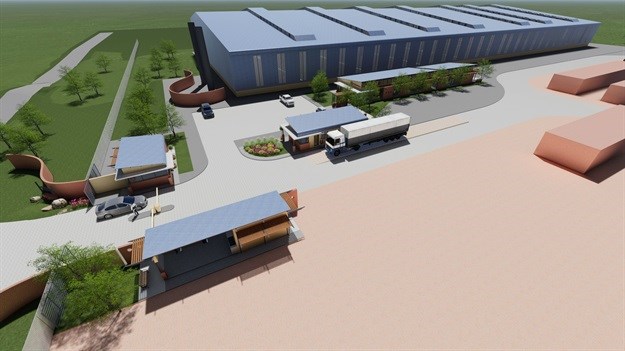
Top stories






More news

Marketing & Media
Warner Bros. was “nice to have” but not at any price, says Netflix

Logistics & Transport
Maersk reroutes sailings around Africa amid Red Sea constraints

















Dirk Meyer, chief executive of Corobrik, said this was likely to be followed by another mega factory on the East Rand, with future expansion in KwaZulu-Natal and the Western Cape within the next five to six years.
Corobrik currently operates 13 clay brick factories and 14 kilns countrywide which produce a mix of plaster and face bricks for the residential and commercial markets. It also has two concrete operations in Durban which supply concrete paving and retaining walls.
The company converted two further kilns to clean natural gas in 2011 and was one of the first South African companies to sell carbon credits. It produces a billion bricks per year and sells about four million bricks per working day.
Meyer said that the new Driefontein facility would produce around 100-million bricks per year - double that of the existing facility there – and use only a third of the energy currently used by its predecessor where the 30 year-old kilns are outdated and not fuel efficient. The new kilns will be fully automated. Once the new facility is fully operational, the obsolete older facility will be shut down and demolished. In addition, the new operation will produce zero waste.
Meyer said that the technology would be supplied and commissioned by German supplier Keller, which has been in the industry for over 100 years.
The design phase of the project began two years ago. Last year, the company completed an intricate audit process to investigate three different manufacturing processes. This culminated in the signing of the agreement with Keller in January this year.
He said that while the equipment itself would be manufactured offshore, it would be installed using local expertise and labour.
Meyer added that the new Driefontein facility would follow in the footsteps of the Rietvlei facility which Corobrik had developed into its first mega factory.
“We believe it will lower the cost of manufacture whilst significantly improving the quality of our product. This will not only improve efficiencies and grow existing markets but allow us to develop new products and income streams on the back of projected economic recovery in the country. This fits perfectly with our objective of growing the company organically,” he pointed out.
In January this year, Corobrik commissioned a R65m upgrade to its Rietvlei factory. This upgrade included the purchase of a blending dehacker which automatically blends bricks off the line and packages them in a convenient format. The first person to touch these bricks is now the bricklayer on site. Meyer said similar technology would be incorporated into the Driefontein development.

Corobrik’s investment in its existing facilities during 207/8 also includes R10m at its East brick factory where a robotic setting automates the packing of green bricks onto kiln cars to be fired. R1m will also be spent at Middlewit, R12m at its Springs factory and R30m at its Midrand factory. Refurbishment of the special extruder and cutter at Phesantekraal in the Western Cape means that the factory can now produce Corobrik’s full range of special shapes.
Meyer emphasised that although the new equipment was highly automated, this would not lead to job losses. Instead, employees now had opportunities to increase their technical know-how.
The upcoming investment would also contribute towards transformation in the sector with a staff trust holding 26% of Corobrik’s share capital since 2008. Together with other private shareholders more than 40% of the business is with black ownership. Substantially growing the company’s turnover and profits would ultimately benefit all employees, he said.